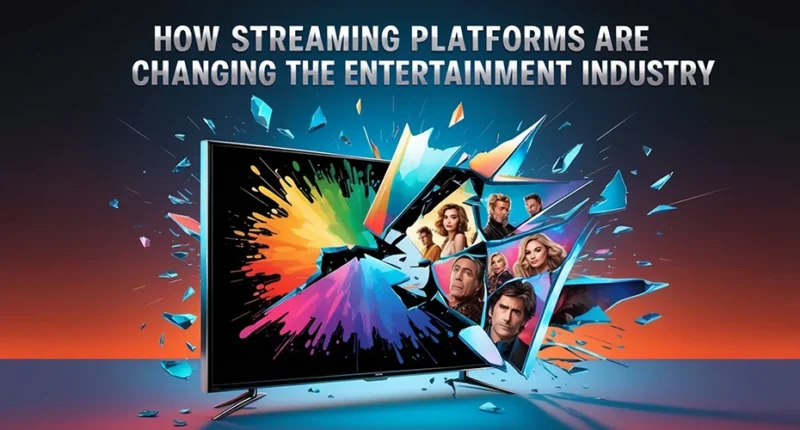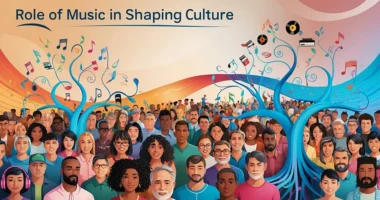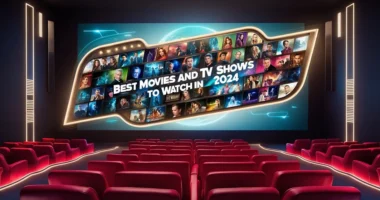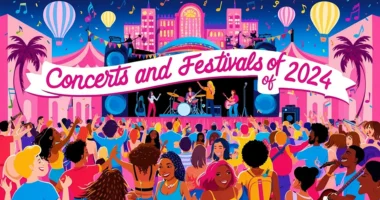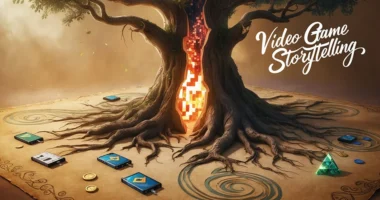Table of Contents
Streaming platforms like Netflix, Hulu, Amazon Prime, and Disney+ have revolutionized the way we consume entertainment. Over the past decade, they have transformed the entertainment industry, changing how we watch TV shows, movies, and even how content is created. These platforms have brought many benefits but also introduced new challenges. Let’s take a look at how streaming services are changing the entertainment landscape.
Convenience and Accessibility
One of the biggest ways streaming platforms have changed the entertainment industry is by making content more accessible. With just an internet connection, people can watch movies and TV shows from anywhere at any time. No need to wait for a specific time slot on TV or go to a movie theater anymore. You can watch your favorite shows on your phone, tablet, or smart TV, making it more convenient than ever before.
On-Demand Content
Gone are the days of waiting for weekly episodes of a TV show or renting a DVD. Streaming services give viewers the ability to watch what they want, when they want, and on their own schedule. This shift to on-demand content has given us more control over our viewing habits. If you want to binge-watch an entire season or movie series, you can do it in one sitting without interruptions.
Original Content Creation
Streaming platforms have become major producers of original content, investing billions into creating movies, documentaries, and TV shows. Netflix, for example, has produced popular series like Stranger Things and The Witcher, while Amazon Prime is known for hits like The Boys and The Marvelous Mrs. Maisel. These platforms are not just distributors; they are now creators of some of the most talked-about content in the entertainment world.
Changes in Content Distribution
Before streaming, most entertainment content was distributed through traditional means, like cable TV or movie theaters. Now, streaming services have become the main platform for many big releases, including blockbuster movies. For example, Disney+ offers exclusive access to Marvel and Star Wars movies, while Netflix releases movies directly to its platform instead of following the traditional theater release model. This shift is challenging the old ways of distributing content and has forced traditional networks and studios to adapt.
Wider Variety of Content
Streaming platforms also provide a wider variety of content, catering to different tastes and preferences. You can find everything from classic movies to niche genres, international films, and even independent films that may not get a chance to be shown in theaters. This makes entertainment more diverse and accessible, allowing people to explore new genres and discover content they might not have otherwise considered.
Personalization and Recommendations
Streaming services use algorithms to recommend shows and movies based on your viewing habits. This means that over time, the platform gets better at suggesting content that matches your interests, making it easier to find something you might enjoy. This level of personalization has made entertainment more tailored and relevant to individual viewers.
Impact on Traditional TV Networks
Streaming platforms have had a significant impact on traditional TV networks. With the rise of platforms like Netflix and Hulu, more people are cutting the cord and canceling cable subscriptions. As a result, TV networks are starting to offer their content on streaming platforms or launching their own services to keep up. For example, HBO Max and Peacock are both services that offer shows and movies from their traditional networks.
Challenges for the Industry
While streaming has brought many positive changes, it also comes with challenges. The rise of streaming services has led to concerns about the future of traditional cable TV and movie theaters. Additionally, with so many platforms offering exclusive content, it can be expensive for viewers to subscribe to multiple services. The increasing amount of content available has also led to “content overload,” making it harder to decide what to watch next.
Conclusion
Streaming platforms have drastically changed the entertainment industry by offering convenience, more content choices, and new ways of producing and distributing shows and movies. As these platforms continue to grow, they are reshaping the future of entertainment, challenging traditional methods, and giving viewers more power than ever before. While there are some challenges, the ongoing changes are creating a more diverse and accessible entertainment world for everyone.
